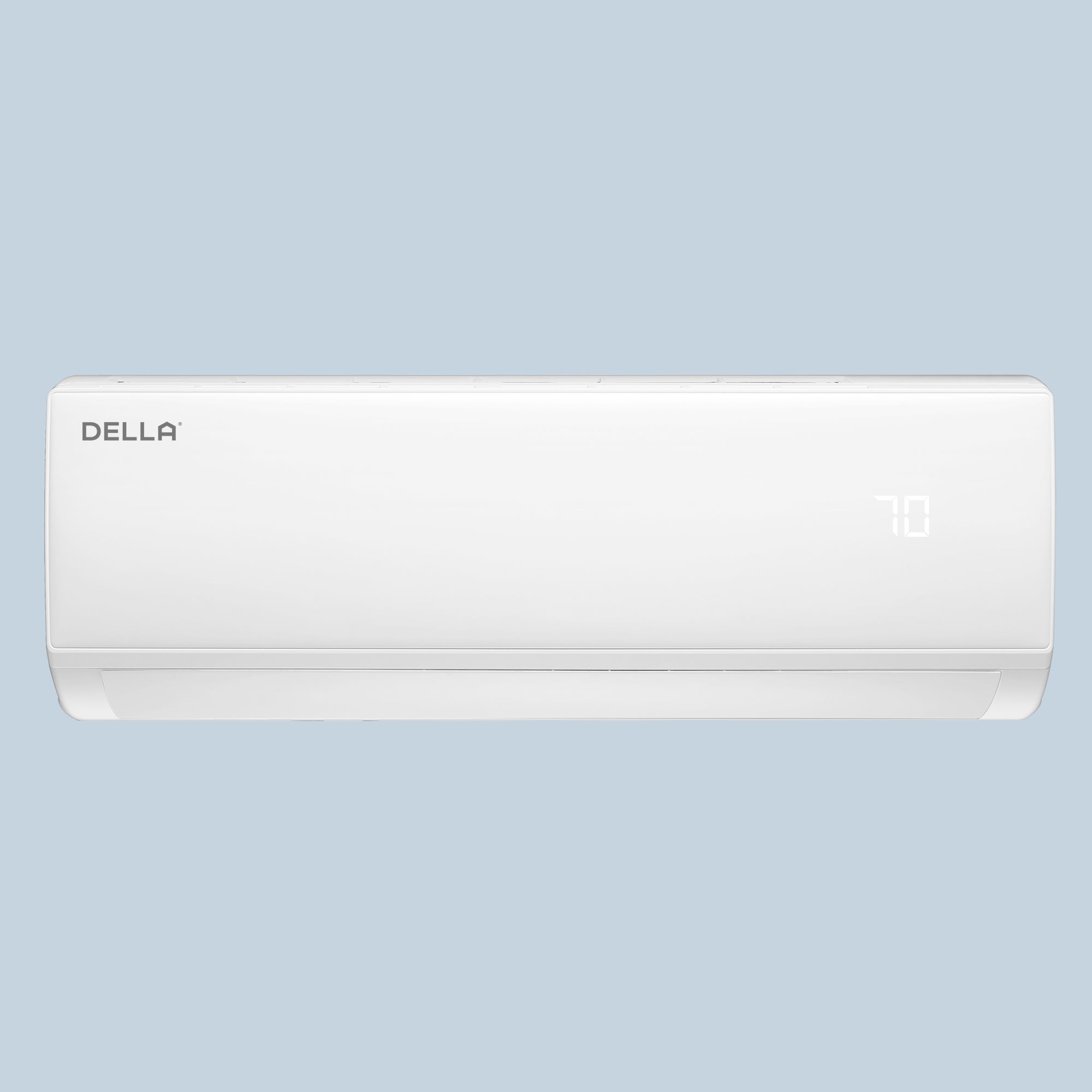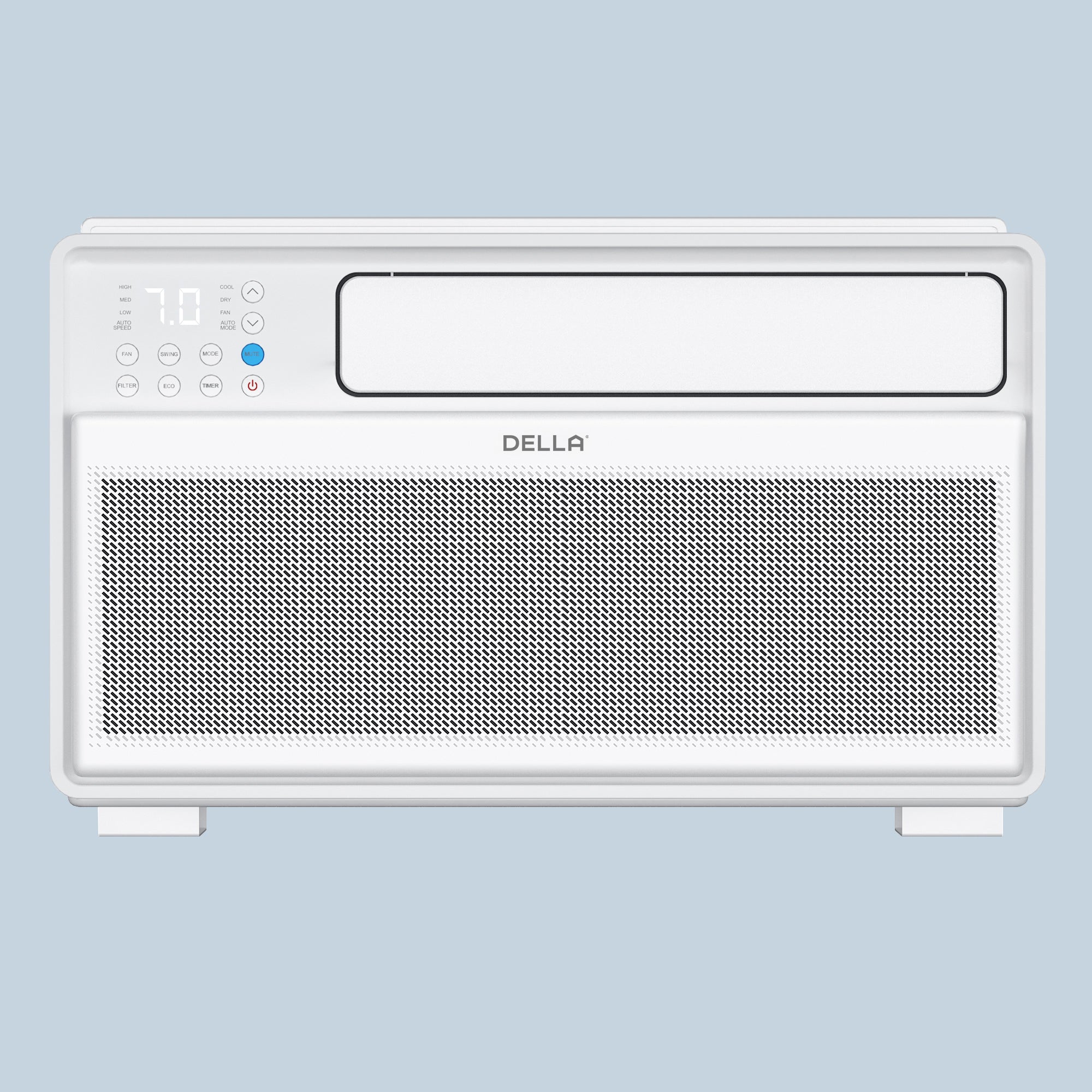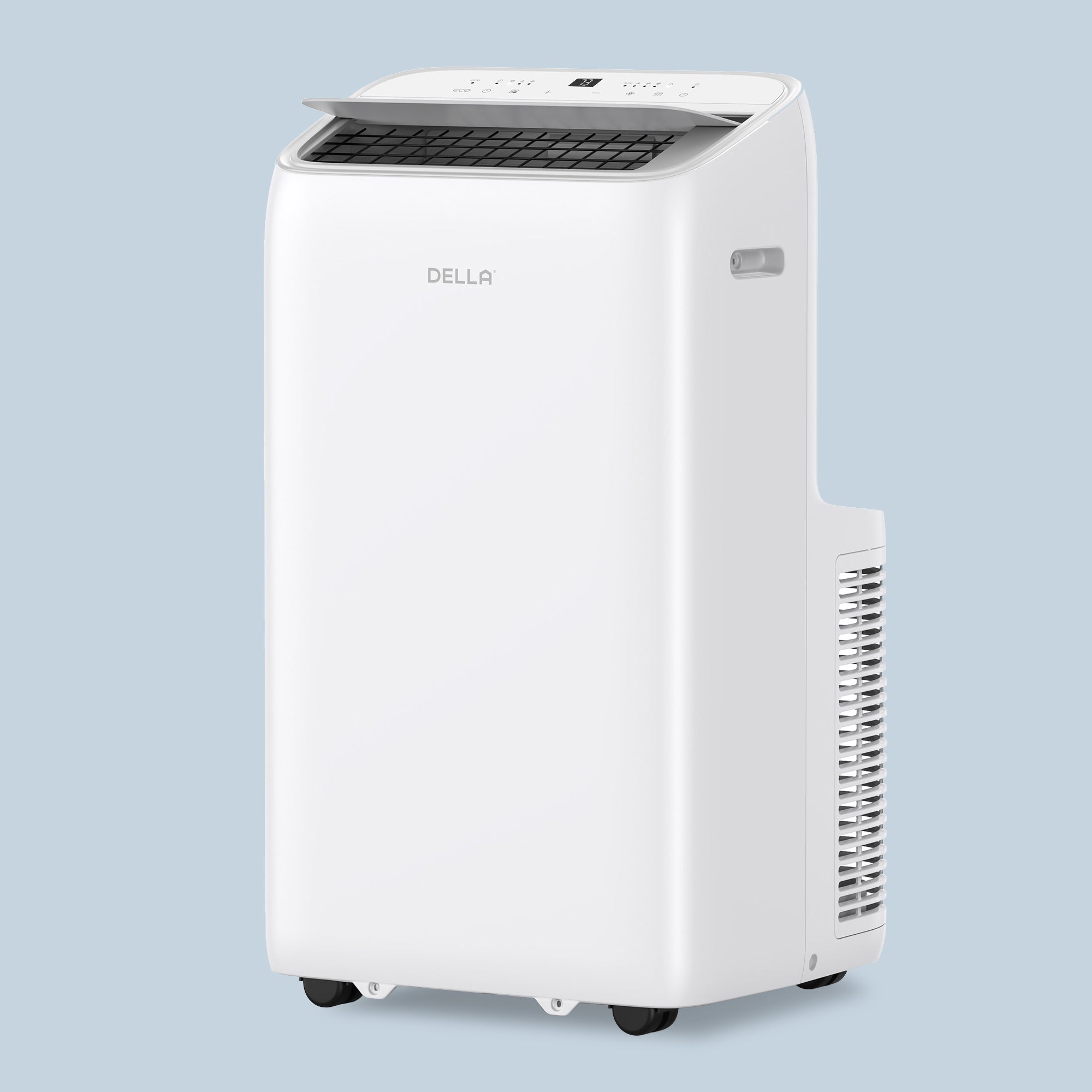Air conditioners are a staple home appliance for summers. Inverter technology is a must-have to save up on electricity bills.
If you have a traditional window air conditioner or HVAC system and want to make the switch, you might be wondering whether inverter air conditioners are worth it or not. The answer is yes. Inverter air conditioners offer greater energy efficiency, comfort, and long-term savings.
That is the short answer. But for a detailed explanation of traditional vs inverter ACs, let’s start by understanding what these two are. This guide will also help you understand the differences so you can make an informed decision.
What are Inverter ACs and Non-Inverter ACs?
Non-inverter or traditional air conditioners use a fixed-speed compressor. This compressor cycles on and off to maintain temperature. Therefore, when the air conditioner reaches the set temperature, it will shut down completely. During this time, the occupants of the room might notice temperature fluctuations between the cycles.
Inverter ACs use a variable-speed compressor. This AC adjusts its power output depending on the room’s cooling needs, which means that the temperature is consistently controlled. There are no compressor “cycles” because the compressor keeps working at a low speed once the desired temperature is obtained. Therefore, this kind of air conditioner is designed to maintain continuous comfort. It can also save energy when operating at low speeds.
Nowadays, there is a newer technology that uses two compressors to maintain temperature. This dual-inverter technology offers greater savings and comfort.

Inverter vs. Non-Inverter Air Conditioners
Now that you’ve understood the basic difference between inverter and non-inverter air conditioners, let’s break down their differences on some key factors related to performance and efficiency:
Energy Efficiency
Inverter ACs: Inverter air conditioners consume less power because they adjust the compressor speed as needed. This means that it reaps up to 30-50% energy savings compared to non-inverter models.
Non-Inverter ACs: In non-inverter air conditioners, the compressor runs at full capacity until the desired temperature is reached. After that, it shuts off and restarts, which leads to more energy usage.
Temperature Control
Inverter ACs: Because inverter ACs have a continuously running compressor unit, they can maintain a steady room temperature. Only the speed of the compressor is adjusted to keep the room’s temperature steady.
Non-Inverter ACs: Non-inverter models work with the same compressor speed. So, when the thermostat notices that the desired temperature is reached, it signals the AC to shut off the compressor. When the temperature falls below the set temperature, it turns on again. This stopping and restarting cycle means temperature fluctuations.
Lifespan
Inverter ACs: It is evident that because the compressor is not strained, inverter models last longer than non-inverter models. This gradual speed adjustment means less wear and tear on the compressor and, therefore, a longer life.
Non-Inverter ACs: Non-inverter air conditioners strain their compressor units because of frequent on-off cycles. This strain means the compressor has a shorter lifespan than inverter units.
Initial Costs
Inverter ACs: Due to advanced technology, inverter models have a higher upfront cost. However, energy savings recoup this initial investment over time.
Non-Inverter ACs: Non-inverter ACs have been around for a long time. Due to this, they are available at a lower price. However, electricity bills and maintenance are an ongoing cost that offsets this initial benefit.
Environmental Impact
Inverter ACs: Inverter ACS offers greater environmental benefits than non-inverter models. This is because the adjustable compressors require less electricity. So, if you’re using fossil fuel-generated electricity, you’ll have a lower carbon footprint with inverter ACs.
Non-Inverter ACs: Non-inverter models consume more electricity which means greater greenhouse emissions, and thus a greater environmental impact.
Noise Level
Inverter ACs: Because the compressors in inverter ACs do not turn on and off frequently, the noise level is low.
Non-Inverter ACs: Non-inverter models are louder because the compressor cycles make noise.

Are Inverter Air Conditioners Worth It?
Yes! Inverter air conditioners are worth their price, especially because they offer long-term savings and are also environmentally friendly. The 30% savings on energy bills will allow you to recoup your initial investment in the system. Plus, inverter models keep the temperature consistent and are less noisy. This means that inverter systems offer a greater comfort level than non-inverter units.
Best Inverter Air Conditioners in 2025
With so many inverter options out there, one is bound to get confused. For your ease, Della offers inverter air conditioners in mini, portable, and window categories:
Inverter Mini Split
For those who prefer a powerful yet efficient cooling solution, the Della 12,000 BTU Mini Split with WiFi-Enbled and 21 SEER2 is a standout option.
This model is designed to cool spaces up to 550 sq. ft. Plus, its WiFi-enabled smart control allows you to adjust settings remotely, meaning that you can come home to a room that is cooled just as you like it.
The ductless system allows it to zone-control your home. Meaning, you can install it in whichever room you like and allow individual control if you install a multi-zone split AC system.
This mini-split model also has a heat pump. So, you’re investing in a system that can give you heating during the winter months too!

Inverter Portable Air Conditioner
For those who need a versatile and mobile cooling option, the Della 14,000 BTU Portable Air Conditioner is an excellent choice. This powerful unit efficiently cools rooms up to 450 sq. ft., making it perfect for apartments, home offices, or any space that requires flexible climate control.
The easy-to-use digital controls and remote operation allow you to set your desired temperature with convenience. It also has a built-in dehumidifier function which helps remove excess moisture from the air. Because of this function, this portable model is perfect for areas that experience high humidity.

Inverter Window Air Conditioner
If you don’t want mini split AC or portable air conditioner, you can go for an inverter window air conditioner model. Amongst inverter window air conditioner models, the LG 10,000 BTU Dual Inverter Smart Window Air Conditioner is a top-tier option.
This model is designed to cool rooms up to 450 sq. ft. Plus, it has dual inverter technology, meaning it uses two compressors that operate at variable speeds. This system enhances energy efficiency and significantly reduces operational noise too.
Conclusion
If you're upgrading your air conditioner in 2025, an inverter AC is the smarter choice. It offers better energy efficiency, quieter operation, and a longer lifespan. Even though inverter air conditioners require a greater upfront investment, the savings make it the best option for the long term.
For the best deals, check out air conditioner sale on Della and find the perfect model for your home.
Read more:
What Size of Mini Split Air Conditioner Do I Need? 2025 Updated
8 Steps to Install a Mini Split Air Conditioner Easily
Pros and Cons of Ductless Mini Splits: Are They Worth It?
Cost to Install Mini Split AC System in 2025








LEAVE A COMMENT
All comments are moderated before being published.
This site is protected by hCaptcha and the hCaptcha Privacy Policy and Terms of Service apply.